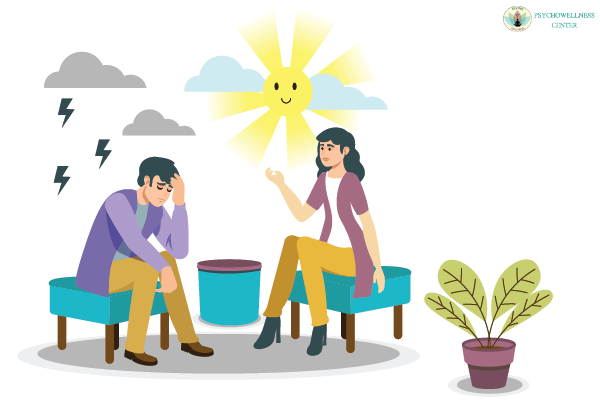Are Psychosocial Interventions Effective in HIV Patients

HIV stands for Human Immunodeficiency Virus, which is a virus that attacks the immune system, specifically the CD4 cells (T cells), that play a key role in helping the body fight off infections and diseases. When HIV damages these cells, it weakens the immune system, making the person more susceptible to other infections and diseases, which can lead to the development of AIDS (Acquired Immune Deficiency Syndrome).
HIV is caused by the transmission of the virus from one person to another. The virus is present in body fluids such as blood, semen, vaginal fluids, and breast milk, and can be transmitted through:
Sexual contact: Unprotected vaginal, anal, or oral intercourse can spread HIV.
Blood-to-blood contact: HIV can be transmitted through sharing of needles or other injection equipment, or through transfusions with contaminated blood.
Mother-to-child transmission: A mother can give birth to her kid or become infected with HIV while nursing her child.
It's important to note that HIV cannot be transmitted through casual contact such as hugging, shaking hands, or sharing utensils or personal items with someone who is infected.
Prevention methods, such as using condoms during sexual activity, practicing safe injection techniques, and getting tested and treated for HIV early on, can help reduce the spread of the virus. In addition, antiretroviral therapy (ART) can help people with HIV manage their virus, prevent the progression of HIV to AIDS, and improve their overall health and quality of life.
The psychological impact of HIV can be significant and far-reaching, affecting not only people living with HIV but also their families, friends, and communities. Here are some of the common psychological effects of HIV:
Stigma and discrimination: People living with HIV often face stigma and discrimination, which can have a negative impact on their mental health. Stigma and discrimination can lead to feelings of shame, isolation, and rejection, and can make it difficult for people with HIV to form meaningful Relationships and access essential health care services.
Anxiety and depression: HIV can cause a range of emotions, including anxiety and depression. This may be due to fear of the virus and its progression, stigma and discrimination, or the stress of managing a chronic illness.
Trauma: For many people, the initial diagnosis of HIV can be a traumatic experience, leading to feelings of shock, anger, and grief. This trauma can also be compounded by experiences of stigma and discrimination.
Grief and loss: Living with HIV can also bring feelings of loss, especially as people with HIV may experience changes in their health status, ability to work, and social relationships. This can lead to feelings of grief and mourning for what once was or what could have been.
Coping with chronic illness: Living with HIV can be challenging, as it is a chronic illness that requires ongoing management and treatment. This can be stressful and overwhelming, leading to feelings of Burnout, fatigue, and hopelessness.
It's important to note that the psychological impact of HIV can be different for everyone and can vary over time. However, accessing support from a mental health professional, support group, or peer group can help individuals living with HIV manage their psychological well-being. In addition, effective antiretroviral therapy (ART) can help people with HIV maintain good physical health, which can positively impact their mental health as well.
The role of psychosocial interventions:
Psychosocial interventions are designed to support patients and their families in coping with the emotional and social challenges of living with HIV. These interventions may include individual counseling, group therapy, support groups, and educational programs. The goal of these interventions is to help patients and their families develop the skills and resilience they need to manage the impact of HIV on their lives.
Types of psychosocial interventions:
Individual counseling: Individual counseling provides a safe and confidential space for patients to discuss their concerns and feelings about living with HIV. This type of intervention may include cognitive-behavioral therapy, solution-focused therapy, or other evidence-based approaches. The Online counselor or Counseling psychologist works with the patient to identify coping strategies, develop a support network, and improve overall mental and emotional well-being.
Group therapy: Group therapy: Group therapy provides a supportive environment where patients can connect with others who are experiencing similar challenges. Individuals can learn from one another, support one another, and share their experiences. Group therapy may also involve structured activities or exercises that help participants develop coping skills and build resilience.
Support groups: Support groups are often led by trained facilitators and provide a safe and supportive environment for patients and their families to discuss their experiences and support one another. Participants can share their stories, learn about resources and coping strategies, and build meaningful connections with others. You can also take help from the Best psychologist in India or search for the Best psychologist delhi.
Educational programs: Educational programs provide information and resources to help patients and their families understand the physical, emotional, and social aspects of living with HIV. These programs may include workshops, classes, and online resources that cover topics such as HIV transmission, medication management, and stigma reduction.
Psychosocial interventions can play a critical role in improving the quality of life for HIV patients and their families. These interventions can help individuals manage the physical, emotional, and social challenges of living with HIV and build the resilience they need to thrive. By providing a safe and supportive environment, these interventions can also help reduce stigma and discrimination and promote a positive, hopeful outlook for the future.
Contact the Psychowellness Centre. to arrange a mental health therapy appointment. highly qualified and renowned psychologists. The location of the facility is close to Delhi NCR, Janakpuri, Dwarka,
Contributions by- Dr. (Prof) R.K Suri & Ms. Varshini Nayyar Psychologist
.png)



SHARE